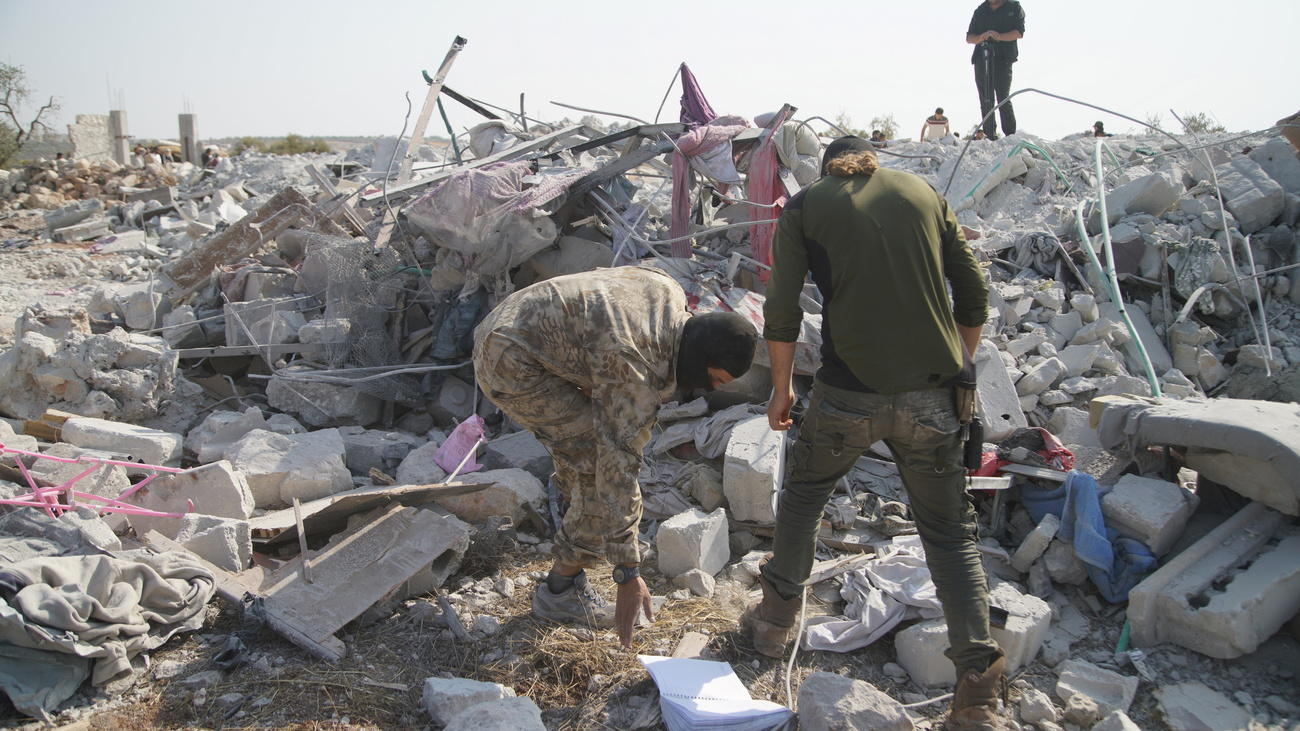
Swiss newspapers downplay the importance of Baghdadi killing

After the announcement that Islamic State leader Abu Bakr al-Baghdadi was killed by United States special forces, Swiss newspapers doubt that the fate of the caliphate is in danger.
“The Caliph is gone, not the caliphate,” writes the Tages-Anzeiger, the strongest of the Swiss newspapers in suggesting that the death of Baghdadi will do little to dent his organisation.
Baghdadi – “never a charismatic leader” – is less important to Islamic State followers than the idea of a caliphate itself, an idea that will survive beyond his death, its editorial writes.
“The black flag of IS still flutters in Afghanistan, Sinai, West Africa – and perhaps again soon in its core lands,” it says. Donald Trump is “fooling himself” if he thinks killing the group’s leader is any more than symbolic.
The Neue Zürcher Zeitung is more nuanced.
While it questions Donald Trump’s assertion that the world has suddenly become a “safer place”, saying the caliphate’s legacy remains “poisonous”, the paper’s correspondent paints a more complicated picture of the regional power struggles that also include causes for hope.
The fear of a complete vacuum of power in Syria that could not be filled by the state – and which IS could have taken advantage of – seems to have been avoided in the short term, it writes.
And while powers such as Iran and Russia see the Syrian situation as a clear sign that any freedom in the region can “only lead to chaos”, various movements continue to ask for just that, with pro-democracy citizen protests ongoing in lands from Sudan to Iraq to Lebanon.
“The West should draw hope from this, and provide stronger support”, it says.
Symbolism
The country’s two leading French-language Swiss dailies focus on the symbolism and possible indirect effects of the operation.
Le Temps writes that such a “popular” operation will bring a significant domestic boost to Donald Trump at a key moment in the US election campaign.
However, Trump and his team are surely aware that such a “liquidisation” of a figurehead is not enough to weaken the movement as such – the example of Al Qaida hanging on in Yemen and in Syria after the killing of Osama Bin Laden was an obvious precedent.
In this light, the paper writes, Trump’s efforts to mock and demean Baghdadi in death – “he died like a dog, like a coward,” the president said – are an effort to avoid any glorification of his figure.
“In killing their enemy, the US took the risk of transforming him into a martyr. They have to try to destroy his reputation,” Le Temps writes.
The Tribune de Genève, finally, is more scathing about the manner in which the US released the “useless details” around the nature of the operation.
Its editorial traces a direct line from Saddam Hussein’s discovery and execution by the Bush Administration, to Bin Laden’s assassination by the Obama Administration, to Trump’s success with Al-Baghdadi, and says that such killings are no longer enough.
“The US knows how to showcase its effectiveness in neutralising its enemies. But it has abandoned any political ambition in the Middle East. No one death, even a spectacular one, will ever cover over the failure of US interventions in Syria, Iraq, and Afghanistan,” the paper concludes.

In compliance with the JTI standards
More: SWI swissinfo.ch certified by the Journalism Trust Initiative






























You can find an overview of ongoing debates with our journalists here . Please join us!
If you want to start a conversation about a topic raised in this article or want to report factual errors, email us at english@swissinfo.ch.